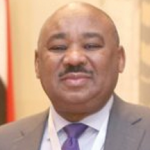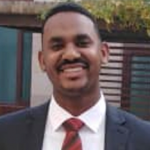Around 65 years ago when Sudan was about to gain its independence, it was described as a “bright spot in a dark continent.” Unfortunately, that optimism about Sudan could not have been more wrong. Instead, Sudan has come to be a country defined by conflicts, political instability, and development failures. To date, the country has experienced three long-reigning, dysfunctional, and autocratic military regimes interrupted by three popular uprisings (in 1964, 1986, and 2018-present). The first two led to short-lived democracies, while, as before, the demise of the last autocratic regime led to the formation of the current transitional government, entrusted with the task of preparing the country for democratic elections in 2023. However, this nascent transitional government was toppled by a palace coup on 25 October 2021 well before the much-anticipated election of 2023. This peculiar Sudanese political history came to be characterized in popular Sudanese literature as the “Sudan Syndrome.” The main research questions considered in this paper revolve around explaining this “syndrome,” drawing lessons for the current transition, and exploring how Sudan can break free from the vicious cycle that plagued its post-independence history toward the stable, prosperous, democratic state that was originally thought to be its destiny. We use the “narrow corridor” model of Daron Acemoglu and James Robinson as the main analytical framework for analyzing the phenomena and for drawing lessons for the current political transition in Sudan. Specifically, we ask three fundamental questions: how can Sudan re-enter the corridor following the recent setback in October 2021? How can the country broaden the corridor and stay in it toward a balanced and mature democratic project? Finally, how can the country engineer the national project for achieving these two objectives while accounting for both the political and economic agenda of the social contract?
ملخص
منذ حوالي 65 عامًا، عندما كان السودان على وشك الحصول على استقلاله، وُصف بأنه «نقطة مضيئة في قارة مظلمة». لسوء الحظ، لم يكن من الممكن أن يكون هذا التفاؤل بشأن السودان أكثر خطأ. بدلاً من ذلك، أصبح السودان دولة محددة بالصراعات وعدم الاستقرار السياسي وإخفاقات التنمية. حتى الآن، شهدت البلاد ثلاثة أنظمة عسكرية طويلة الأمد ومختلة وظيفيًا واستبدادية قاطعتها ثلاث انتفاضات شعبية (في 1964 و 1986 و 2018 إلى الوقت الحاضر). أدى الأولان إلى ديمقراطيات قصيرة العمر، بينما أدى زوال النظام الاستبدادي الأخير، كما كان من قبل، إلى تشكيل الحكومة الانتقالية الحالية، المكلفة بمهمة إعداد البلاد للانتخابات الديمقراطية في عام 2023. ومع ذلك، أطيح بهذه الحكومة الانتقالية الناشئة بانقلاب القصر في 25 أكتوبر 2021 قبل وقت طويل من الانتخابات التي طال انتظارها في عام 2023. أصبح هذا التاريخ السياسي السوداني الغريب يتميز في الأدب السوداني الشعبي باسم «متلازمة السودان». تدور الأسئلة البحثية الرئيسية التي تم تناولها في هذه الورقة حول شرح هذه «المتلازمة»، واستخلاص الدروس للانتقال الحالي، واستكشاف كيف يمكن للسودان التحرر من الحلقة المفرغة التي ابتليت بها تاريخه بعد الاستقلال نحو دولة ديمقراطية مستقرة ومزدهرة كان يعتقد في الأصل أن مصيره. نحن نستخدم نموذج «الممر الضيق» لدارون أسيموغلو وجيمس روبنسون كإطار تحليلي رئيسي لتحليل الظواهر واستخلاص الدروس للانتقال السياسي الحالي في السودان. على وجه التحديد، نطرح ثلاثة أسئلة أساسية: كيف يمكن للسودان العودة إلى الممر بعد الانتكاسة الأخيرة في أكتوبر 2021 ؟ كيف يمكن للبلاد توسيع الممر والبقاء فيه نحو مشروع ديمقراطي متوازن وناضج ؟ وأخيرا، كيف يمكن للبلد أن يهندس المشروع الوطني لتحقيق هذين الهدفين مع مراعاة جدول الأعمال السياسي والاقتصادي للعقد الاجتماعي ؟

Research Fellows
Ibrahim Elbadawi
Development Studies & Research Forum, Dubai

Authors
Alzaki Alhelo
PhD, Tufts University


